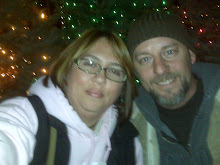I was very curious yesterday of "Why we associate eggs with Easter?" So I found this article this afternoon and here is why.
Eggs are traditionally connected with rebirth, rejuvenation and immortality. This is why they are often associated with Easter. On a more practical level? In the early Christian calendar eggs were forbidden during Lent. This made them bountiful and exciting forty days later. Easter eggs are sometimes decorated with bright colors to honor this celebration. Russian pysanki is one of the most elaborate forms. Conversely, the abstinence of eggs is associated with Lent.
"Eggs were colored, blessed, exchanged and eaten as part of the rites of spring long before Christian times. Even the earliest civilizations held springtime festivals to welcome the sun's rising from its long winter sleep. They thought of the sun's return from darkness as an annual miracle and regarded the egg as a natural wonder and a proof of the renewal of life. As Christianity spread, the egg was adopted as a symbol of Christ's Resurrection from the tomb. For centuries, eggs were among the foods forbidden by the church during Lent, so it was a special treat to have them again at Easter. In Slavic countries, baskets of food including eggs are traditionally taken to church to be blessed on Holy Saturday or before the Easter midnight Mass, then taken home for a part of Easter breakfast. People in central European countries have a long tradition of elaborately decorated Easter eggs. Polish, Slavic and Ukrainian people create amazingly intricate designs on the eggs. They draw lines with a wax pencil or stylus, dip the egg in color and repeat the process many times to make true works of art. Every dot and line in the pattern has a meaning. Yugoslavian Easter eggs bear the initials "XV" for "Christ is Risen," a traditional Easter greeting. The Russians, during the reign of the tsars, celebrated Easter much more elaborately than Christmas, with Easter breads and other special foods and quantities of decorated eggs given as gifts. The Russian royal family carried the custom to great lengths, giving exquisitely detailed jeweled eggs made by goldsmith Carl Faberge from the 1880's until 1917.
In Germany and other countries of central Europe, eggs that go into Easter foods are not broken, but emptied out. The empty shells are painted and decorated with bits of lace, cloth or ribbon, then hung with ribbons on an evergreen or small leafless tree. On the third Sunday before Easter, Moravian village girls used to carry a tree decorated with eggshells and flowers from house to house for good luck. The eggshell tree is one of several Easter Traditions carried to America by German settlers especially those who became known as Pennsylvania Dutch. They also brought the fable that the Easter bunny delivered colored eggs for good children. Easter is an especially happy time for children and many Easter customs are for their enjoyment. Hunting Easter eggs hidden around the house or yard is a universal custom and so are egg-rolling contests."
---Easter eggs, American Egg Board
"Because the use of eggs was forbidden during Lent, they were brought to the table on Easter Day, coloured red to symbolize the Easter joy. This custom is found not only in the Latin but also in the Oriental Churches. The symbolic meaning of a new creation of mankind by Jesus risen from the dead was probably an invention of later times. The custom may have its origin in paganism, for a great many pagan customs, celebrating the return of spring, gravitated to Easter. The egg is the emblem of the germinating life of early spring. Easter eggs, the children are told, come from Rome with the bells which on Thursday go to Rome and return Saturday morning. The sponsors in some countries give Easter eggs to their god-children. Coloured eggs are used by children at Easter in a sort of game which consists in testing the strength of the shells (Kraus, Real-Encyklop die, s. v. Ei). Both coloured and uncoloured eggs are used in some parts of the United States for this game, known as "egg-picking". Another practice is the "egg-rolling" by children on Easter Monday on the lawn of the White House in Washington."
I thought this was very interesting. I hope you do to.
Growth & Changes
7 years ago







No comments:
Post a Comment